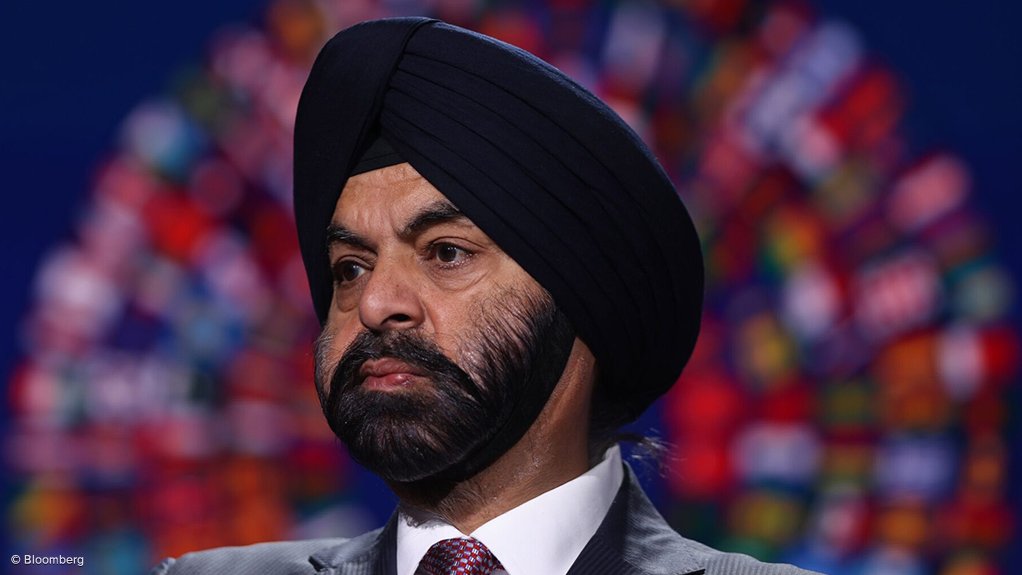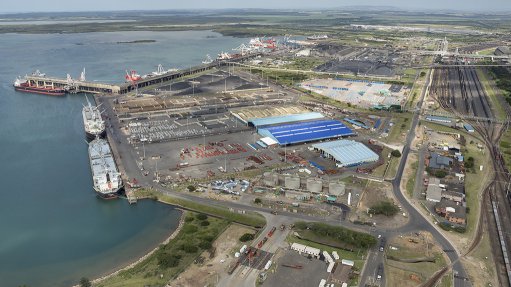World Bank, IAEA formalise partnership to collaborate on nuclear energy for development
The World Bank Group and the International Atomic Energy Agency (IAEA) have agreed to collaborate on supporting the safe, secure and responsible use of nuclear energy in developing countries.
The partnership agreement, signed by World Bank Group president Ajay Banga and IAEA director-general Rafael Mariano Grossi, formalises multiple engagements between the two institutions over the last year, and marks the World Bank Group’s first concrete step to re-engage with nuclear power in decades.
The agreement also reflects a new, broader approach by the World Bank Group to electrification – one that prioritises accessibility, affordability and reliability, while managing emissions responsibly.
With electricity demand in developing countries is expected to more than double by 2035, this approach aims to help countries deliver the energy people need by enabling pathways that best fit their national context, including development objectives and Nationally Determined Contributions.
In a media release, the World Bank and the IAEA explain that nuclear energy provides continuous baseload power, enhancing grid stability and resilience. Reliable baseload electricity is essential for job-generating sectors such as infrastructure, agribusiness, healthcare, tourism and manufacturing.
Nuclear power is also a source of high-skilled employment and stimulates investment across the broader economy. It can also adjust to changes in electricity demand and support frequency regulation, enabling greater integration of variable renewable energy sources.
"Jobs need electricity. So do factories, hospitals, schools and water systems. And as demand surges – with AI and development alike – we must help countries deliver reliable, affordable power.
“That’s why we’re embracing nuclear energy as part of the solution – and re-embracing it as part of the mix the World Bank Group can offer developing countries to achieve their ambitions. Importantly, nuclear delivers baseload power, which is essential to building modern economies,” says Banga.
“Our partnership with the IAEA marks an important step, and I’m grateful to Rafael for his personal commitment and leadership in making this possible. Together, we’ll deepen our expertise, support countries that choose nuclear, and ensure that safety, security, and sustainability guide every step forward”.
“Today’s agreement is a milestone and the result of a year of joint work since president Ajay Banga kindly invited me to the World Bank Group executive board in Washington in June of last year,” adds Grossi.
“This landmark partnership, yet another sign of the world’s return to realism on nuclear power, opens the door for other multilateral development banks and private investors to consider nuclear as a viable tool for energy security and sustainable prosperity. Together, we can help more people build a better future”.
Under the memorandum of understanding signed on June 26, the IAEA will work with the World Bank Group in three key areas.
Firstly, the entities aim to build knowledge related to the nuclear field by expanding the World Bank Group’s understanding of nuclear safety, security, safeguards, energy planning, new technologies, fuel cycles, reactor lifecycles and waste management.
Secondly, the IAEA and World Bank aim to extend the lifespan of existing nuclear power plants by supporting developing countries in safely extending the life of existing nuclear reactors – one of the most cost-effective sources of low-carbon power – as many global reactors near the end of their original 40-year design life.
Lastly, the entities aim to accelerate the development of small modular reactors (SMRs), which offer flexible deployment, lower upfront costs and potential for wide adoption in developing economies.
The World Bank and IAEA note that 31 countries currently operate nuclear power plants, which combined produce about 9% of the world’s electricity, amounting to almost a quarter of all low-carbon power globally.
More than 30 other countries, most of them in the developing world, are considering or already embarking on the introduction of nuclear power and are working with the IAEA to develop the necessary infrastructure to do so safely, securely and sustainably, they explain.
“SMRs have great potential to cleanly and reliably power progress and fight poverty, but financing remains a roadblock. Today’s agreement is a crucial first step to clearing that path,” says Grossi.
Article Enquiry
Email Article
Save Article
Feedback
To advertise email advertising@creamermedia.co.za or click here
Press Office
Announcements
What's On
Subscribe to improve your user experience...
Option 1 (equivalent of R125 a month):
Receive a weekly copy of Creamer Media's Engineering News & Mining Weekly magazine
(print copy for those in South Africa and e-magazine for those outside of South Africa)
Receive daily email newsletters
Access to full search results
Access archive of magazine back copies
Access to Projects in Progress
Access to ONE Research Report of your choice in PDF format
Option 2 (equivalent of R375 a month):
All benefits from Option 1
PLUS
Access to Creamer Media's Research Channel Africa for ALL Research Reports, in PDF format, on various industrial and mining sectors
including Electricity; Water; Energy Transition; Hydrogen; Roads, Rail and Ports; Coal; Gold; Platinum; Battery Metals; etc.
Already a subscriber?
Forgotten your password?
Receive weekly copy of Creamer Media's Engineering News & Mining Weekly magazine (print copy for those in South Africa and e-magazine for those outside of South Africa)
➕
Recieve daily email newsletters
➕
Access to full search results
➕
Access archive of magazine back copies
➕
Access to Projects in Progress
➕
Access to ONE Research Report of your choice in PDF format
RESEARCH CHANNEL AFRICA
R4500 (equivalent of R375 a month)
SUBSCRIBEAll benefits from Option 1
➕
Access to Creamer Media's Research Channel Africa for ALL Research Reports on various industrial and mining sectors, in PDF format, including on:
Electricity
➕
Water
➕
Energy Transition
➕
Hydrogen
➕
Roads, Rail and Ports
➕
Coal
➕
Gold
➕
Platinum
➕
Battery Metals
➕
etc.
Receive all benefits from Option 1 or Option 2 delivered to numerous people at your company
➕
Multiple User names and Passwords for simultaneous log-ins
➕
Intranet integration access to all in your organisation





















